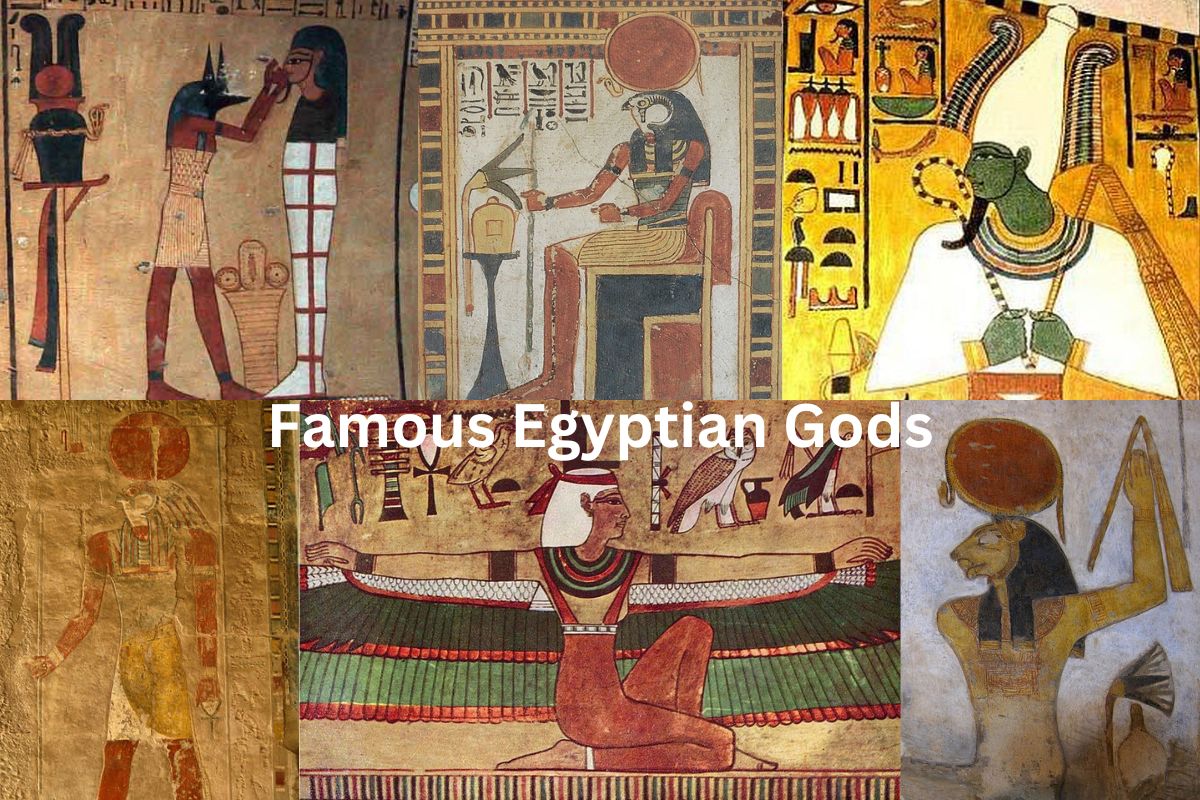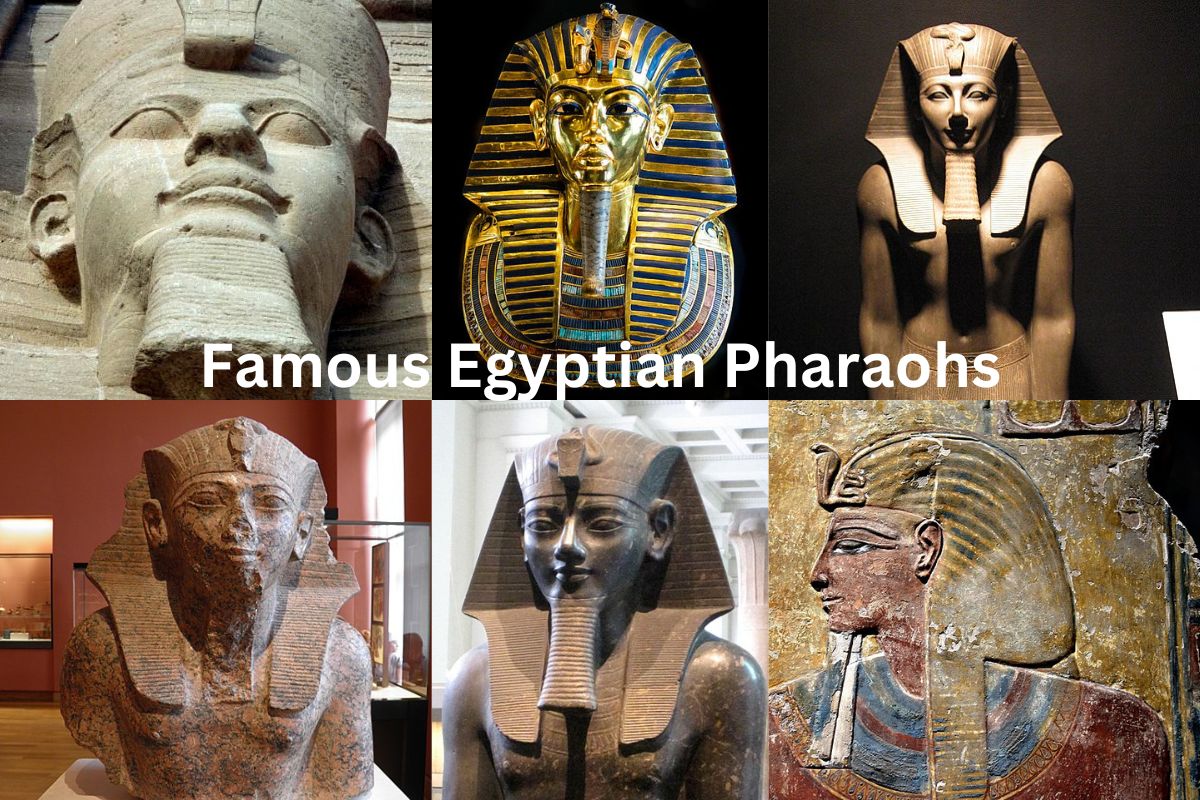Unlocking Ancient Egypt: Religion & The Afterlife - Google Discover
Why did the ancient Egyptians pour so much of their lives into preparing for something they couldn't be certain of the afterlife? Because, for the ancient Egyptians, death wasnt an end, but a transformation, a crucial transition to a new and eternal existence. Their world, their art, their very society revolved around this profound belief, a belief that continues to fascinate and inspire us thousands of years later.
The legacy of ancient Egypt is etched in stone, in the towering pyramids that pierce the sky and the intricate tombs that whisper tales of kings and commoners alike. The archaeological record is dominated by these monuments to the dead, testaments to a civilization obsessed with ensuring a comfortable and successful afterlife. But what were the specific beliefs that drove this extraordinary focus? What did they believe happened to a human being upon death? And how did their religious convictions shape every facet of their lives?
Ancient Egyptian religion, flourishing from the predynastic era (4th millennium BCE) through the first centuries CE, was a complex tapestry of indigenous beliefs. It was a polytheistic system, meaning they worshipped a multitude of gods and goddesses, each with their own specific roles and responsibilities in the cosmos. These deities werent distant, abstract figures, but were actively involved in daily life and the workings of the universe. The Egyptians believed that the phenomena of nature were divine forces in and of themselves. These deified forces included the elements, animal characteristics, or abstract forces.
Among the most prominent of these were Ra, the sun god, the life-giver and source of all energy; Osiris, the god of life, death, and resurrection, who embodied the cyclical nature of existence; and Isis, the goddess of magic, motherhood, and protection, revered as the ideal wife and mother. The Theban Triad Amun, Mut, and Khonsu held particular importance in the later periods of Egyptian history. Bastet, often depicted as a cat-headed goddess, was associated with the home, fertility, and women's secrets. This pantheon of gods, intertwined with every aspect of nature and human society, was the cornerstone of Egyptian life. The gods of ancient egypt were believed to be interested and involved in the lives of people's daily lives. The religious impact affected almost everything in ancient egypt from the most important to very minor thing. Ancient egyptian literature, philosophy, art and also governance had a religious sense.
The ancient Egyptians held a fascinating understanding of the human condition, with their beliefs deeply influencing their society and culture. Their belief in an afterlife didn't lead to a single, monolithic vision, but rather a complex journey, a progression through various realms based on earthly deeds. Every individual possessed a "ka," the life force, and a "ba," the soul. Upon death, the ka would initially leave the body, and upon death, the ka leaves the body. The Ka's existence was dependent on the body. The goal, then, was to ensure both the preservation of the body (through mummification) and the successful passage of the soul through the afterlife. The journey was fraught with challenges, requiring intricate rituals, spells, and the guidance of the gods.
The religious practices of the ancient Egyptians were deeply ingrained in their culture and society. Sacred rites and rituals could guide any Egyptian through the afterlife. Pharaohs weren't the only ones mummified. The Egyptians believed everyone possesses the ka, or life force, and the ba, the soul. According to ancient egyptians beliefs, the cosmos is divided into three types of sentient beings, the holy gods, the deceased humans who exist in a divine realm, and the living humans whose most important characteristics are the pharaoh who was the only line of communication between the humans and the divine realms. The belief systems of ancient egypt were integral to the civilization\u2019s identity, influencing its culture, society, and achievements. Ancient egyptian literature, philosophy, art and also governance had religious sense.
- Unveiling Jennifer Landon From Yellowstones Teeter To Michael Landons Legacy
- Decoding The Digital Maze What Is Masalafun Plus More
But why this intense focus on the afterlife? The answer lies in the Egyptian worldview. They didn't see death as an end, but a transition, a pivotal step towards a continued existence. They believed that the most significant thing you could do in your life was die. Their religious beliefs and thoughts on the afterlife shaped their every action. The afterlife was not simply a place to go, but a new life that would be as good as the life on earth. The egyptians belived the most significant thing you could do in your life was die. To live well in the afterlife, one must ensure the body was preserved through mummification. To prepare for this transition, they meticulously prepared the bodies of the deceased, and provided them with everything they would need to live in the next world. The importance of a proper burial and providing the deceased with everything that they needed in the afterlife shows how important death was to the ancient Egyptians.
The notion is rooted in the ancient egyptian beliefs about mummification and the journey to the afterlife. In ancient Egypt, preparing for the afterlife was the most important thing you could do. The ancient egyptians believed everyone possesses the ka, or life force, and the ba, the soul. Ancient egyptians did not believe in a singular afterlife. The religious practices of the ancient egyptians were deeply ingrained in their culture and society. The belief systems of ancient egypt were integral to the civilization\u2019s identity, influencing its culture, society, and achievements. Religion was one of the most important and influential aspect of the ancient egyptians\u2019 lives.
| Feature | Details |
|---|---|
| Main Belief | The Egyptians believed in an afterlife where the soul could navigate different realms based on earthly deeds. Death was seen as a transition, not an end. |
| Key Deities | Ra (sun god), Osiris (god of life and death), Isis (goddess of magic and motherhood), Anubis, Mut, and Khonsu. |
| Cosmology | Divided into three types of beings: holy gods, deceased humans, and living humans, with the Pharaoh as the link between humans and the divine. |
| Afterlife Journey | Complex, involving various realms and challenges, based on earthly actions. Mummification, rituals, and spells were crucial. |
| Importance of Religion | Shaped every aspect of life, from art and governance to daily rituals and societal structure. |
| Impact on Christianity | Influenced the concept of an afterlife where the soul continues after death and eternal life is earned through righteousness. |
| Key Concepts | Ka (life force), Ba (soul), Mummification, Hieroglyphics, Rituals, and the Afterlife journey. |
The role of the pharaoh in this intricate system was paramount. Pharaohs were not only rulers but also intermediaries between the gods and the people. They were considered divine beings, responsible for maintaining maat, the cosmic order, and ensuring the prosperity of Egypt. Their preparation for the afterlife was therefore of utmost importance, as their successful passage would not only benefit themselves but also the entire kingdom. This included elaborate tombs, filled with provisions, treasures, and magical texts to aid them on their journey.
Pharaohs were prepared through elaborate rituals and immense preparations. These preparations included the construction of massive tombs, such as the pyramids, which were intended to house their mummified bodies and provide them with everything they needed in the afterlife. These structures once housed the graves of mummified pharaohs and their family. The tombs were filled with provisions, treasures, and religious texts, such as the Book of the Dead, which contained spells and instructions to guide them through the afterlife. The pharaoh's mummification was a sacred process, designed to preserve their body and allow their spirit to return to it in the afterlife. Their power stemmed not only from their earthly rule but also from their perceived connection to the divine realm, making them essential figures in navigating the complexities of death and the afterlife.
The ancient Egyptians did not believe in a singular afterlife; rather, they envisioned a complex and multi-layered journey. The afterlife was not just a destination, but a process, a realm to navigate, and it's passage was determined by one's conduct during life. Their afterlife was not an escape from the world, but a continuation of it, requiring the same resources and comforts as they did on earth. Their beliefs were deeply ingrained in their culture, influencing art, architecture, and societal structures. The beliefs and practices related to death were among the most fascinating elements about ancient egyptian society.
The influence of ancient Egyptian beliefs extends beyond their time. Their focus on the soul's immortality and judgment after death influenced the development of Christianity. Christianity believed that the soul can live on after death, and that the afterlife is a place of eternal life if one has been just and righteous in life. Their idea of the afterlife and the preparations for it mummification, the journey through the underworld, and the final judgment laid the groundwork for later religious concepts, demonstrating the enduring power of their profound beliefs.
It seems that what most people associate with the egyptians is their beliefs about death and what happens afterwards. From worshiping a multitude of gods to intricate rituals and ceremonies, the religious practices of the ancient egyptians were deeply ingrained in their culture and society. The ancient egyptians had a very complex belief system about the afterlife.
The egyptians believed that the phenomena of nature were divine forces in and of themselves. The egyptians believed in a pantheon of gods, which were involved in all aspects of nature and human society. Religion was one of the most important and influential aspect of the ancient egyptians\u2019 lives. Religious impact affected almost everything in ancient egypt from the most important to very minor thing. Ancient egyptian literature, philosophy, art and also governance had religious sense. The gods of ancient egypt were believed to be interested and involved in the lives of people's daily lives.



Detail Author:
- Name : Prof. Isabelle Tillman MD
- Username : bethany.greenholt
- Email : considine.jordan@fadel.com
- Birthdate : 1972-01-05
- Address : 189 Alvina Path Port Sven, AL 41053-4181
- Phone : 253-633-0359
- Company : Ryan-Abshire
- Job : Motion Picture Projectionist
- Bio : Sapiente nam amet eos officia. Reprehenderit repellat unde sit repellendus aperiam molestias dolor. Sed asperiores est similique placeat animi nihil exercitationem.
Socials
linkedin:
- url : https://linkedin.com/in/grimesf
- username : grimesf
- bio : Libero autem adipisci nostrum minima qui qui.
- followers : 2967
- following : 394
tiktok:
- url : https://tiktok.com/@frankie_dev
- username : frankie_dev
- bio : Labore adipisci voluptatem dolores consequuntur beatae ratione.
- followers : 4813
- following : 1561
instagram:
- url : https://instagram.com/frankie.grimes
- username : frankie.grimes
- bio : Error aut pariatur exercitationem exercitationem quia. Ipsa voluptatibus illo ad eius.
- followers : 4161
- following : 804